 Istanbul Archeology Museum, a unique museum in which you can see the traces of rich cultures and civilizations that Turkey has hosted throughout the history, is just one of the most important and well-established museums in our country. This impressive museum offers an unforgettable experience to science and art lovers, by hosting the most valuable works in the world. Adorned with stunning and detailed exhibitions, this magnificent place is the first state-owned museum in Turkey, and it invites you to travel through time with the stunningly beautiful historical artifacts.
Istanbul Archeology Museum, a unique museum in which you can see the traces of rich cultures and civilizations that Turkey has hosted throughout the history, is just one of the most important and well-established museums in our country. This impressive museum offers an unforgettable experience to science and art lovers, by hosting the most valuable works in the world. Adorned with stunning and detailed exhibitions, this magnificent place is the first state-owned museum in Turkey, and it invites you to travel through time with the stunningly beautiful historical artifacts.
 Istanbul Archeology Museum was built in the late 19th century during the Ottoman Empire. The museum, which was opened on June 13, 1891, was established by Osman Hamdi Bey for the purpose of preserving and exhibiting the ancient artifacts. The museum consists of three separate buildings, which are Archeology Museum, Museum of the Ancient Orient and Tiled Kiosk, located in Sultanahmet Square in Istanbul.
Istanbul Archeology Museum was built in the late 19th century during the Ottoman Empire. The museum, which was opened on June 13, 1891, was established by Osman Hamdi Bey for the purpose of preserving and exhibiting the ancient artifacts. The museum consists of three separate buildings, which are Archeology Museum, Museum of the Ancient Orient and Tiled Kiosk, located in Sultanahmet Square in Istanbul.
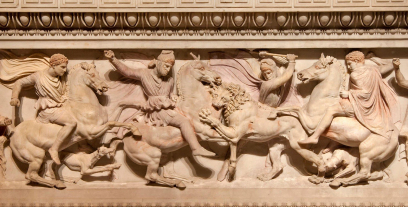 The importance of the Istanbul Archeology Museum in Turkey is not limited to its historical and cultural value. It is also a great resource for scientific research. Thanks to the research laboratories in the museum, the archaeologists and historians can find the opportunity to work on the artifacts exhibited there, and they can access the new information.
The importance of the Istanbul Archeology Museum in Turkey is not limited to its historical and cultural value. It is also a great resource for scientific research. Thanks to the research laboratories in the museum, the archaeologists and historians can find the opportunity to work on the artifacts exhibited there, and they can access the new information.
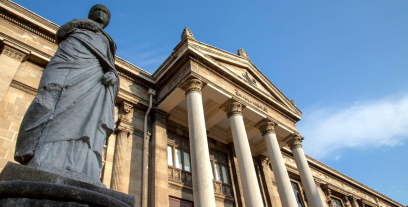 Which Artifacts Are Available in the Istanbul Archeology Museum?
Which Artifacts Are Available in the Istanbul Archeology Museum?There are definitely people who wonder what artifacts are available in the Istanbul Archeology Museum. The collection of the Istanbul Archeology Museum includes thousands of artifacts from different civilizations. Among such artifacts are valuable pieces belonging to Mesopotamia, Ancient Egypt, Ancient Greece, Rome and Anatolian civilizations. Thanks to the unique artifacts in the Istanbul Archeology Museum, you can witness a wide historical perspective ranging from Ancient Greece to the Roman Empire, from the Byzantine to the Ottoman Empire.
 Tabnit Sarcophagus
Tabnit Sarcophagus
Another important part of the museum is the Tabnit Sarcophagus brought from the Sidon Necropolis. This sarcophagus, dated back to the 6th century BC, was found along with the mummified body of Tabnit who is the King of Sidon. The reliefs and inscriptions available on the sarcophagus are a good example of the art and beliefs of the period.
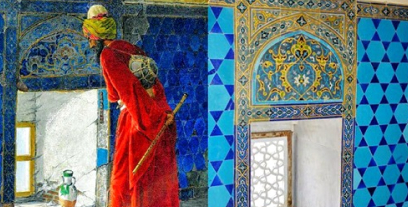 The Tortoise Trainer
The Tortoise TrainerThe Tortoise Trainer, which is famous painting of Osman Hamdi Bey's, is also one of the important works exhibited in the Istanbul Archeology Museum. This painting, drawn in 1906, is a valuable work that left its mark on Turkish painting in the Ottoman period, and it attracts great attention in the museum.
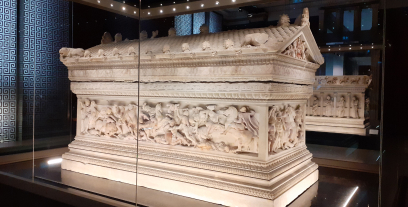 Alexander Sarcophagus
Alexander SarcophagusKnown as the tombstone of Alexander the Great, this sarcophagus belongs to the Ancient Greek period. The heroic scenes and warriors of Alexander are depicted on the sarcophagus.
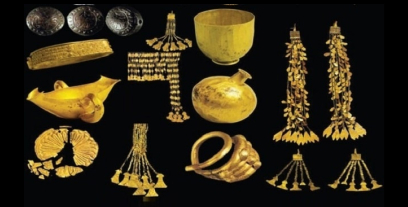 Trojan Treasures
Trojan TreasuresThe Trojan Treasures, containing find from the Trojan War as described in Homer's Iliad, is one of the most valuable collections of the museum. Sculptures, ornaments and gold objects from the different periods of Troy are exhibited in this section.
 Sphinxes
SphinxesThe great sphinxes available in the courtyard of the museum belong to the Ancient Egyptian period. Sphinxes are the sculptures that symbolize the mythological beings having the lion bodies and human faces. You can be sure that such fascinating sculptures attract the attention of many visitors.
 Istanbul Ceramics
Istanbul CeramicsIn the Tiled Kiosk section of the museum, the tiles and ceramics from the Ottoman Empire period are exhibited. Such works are magnificent examples that reflect the rich artistic tradition of the Ottoman Empire. Other valuable works of the museum include the statues, sarcophagi and columns from the Ancient Greek and Roman periods, and the mummies from the Egyptian period, and the various prehistoric finds, and the works of art from the Anatolian civilizations.
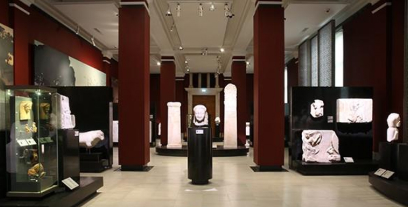 Istanbul Archeology Museum presents such artifacts and finds, which are of great importance in terms of world cultural heritage, to its visitors, both contributing to the scientific studies and helping the people to connect with history. If you are interested in history and travel, you might want to read our article Museums To Visit Freely in Europe in order to obtain information about free museums that you can visit during your trip to Europe.
Istanbul Archeology Museum presents such artifacts and finds, which are of great importance in terms of world cultural heritage, to its visitors, both contributing to the scientific studies and helping the people to connect with history. If you are interested in history and travel, you might want to read our article Museums To Visit Freely in Europe in order to obtain information about free museums that you can visit during your trip to Europe.
Recommended For You
Rumba and Flamenco: Music Genr...
The warm breeze of the Mediter...
Read MoreHow to Cope with Jet Lag...
Long-distance flights often ca...
Read MoreDecoration Tips for Small Home...
Small homes are living spaces ...
Read More